Last week was a terrific week for summer to hang around a little bit longer. It meant that the weather was great for the International Plowing Match (IPM) just outside of Harriston.
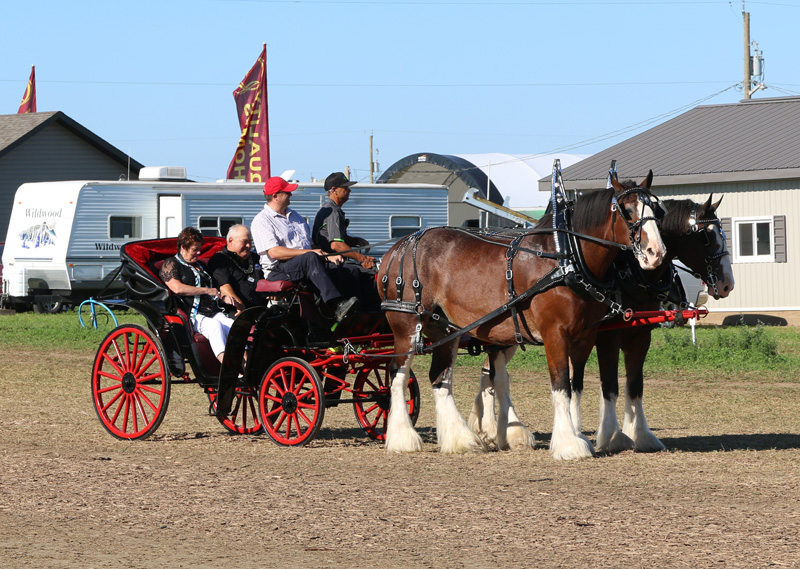 A public event of this size requires years of preparation to ensure its success. Planning for the IPM involved many groups including Wellington-Dufferin-Guelph Public Health.
A public event of this size requires years of preparation to ensure its success. Planning for the IPM involved many groups including Wellington-Dufferin-Guelph Public Health.
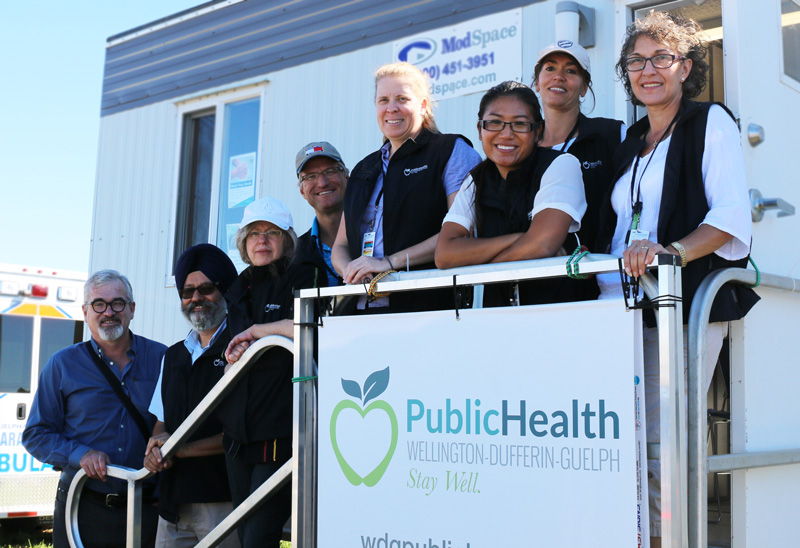
When our public health inspectors first heard that the IPM was coming to our area, their first reaction was “We’re in for a lot of work!”. How can a farmer’s hay field possibly accommodate 100,000 people, 1,500 RV camping sites and over 100 acres of vendors? Where will drinking water come from? How and where will food be prepared safely? The sewage … where will the sewage go? (Yes, those are the first questions that come to our minds!)
Public Health’s role at an event like the International Plowing Match is to prevent illness and to protect the health of the public. Several of the ways we accomplished this at the IPM were to make sure the water was safe to drink, the food was safe to eat, and handwashing stations were available at appropriate locations.
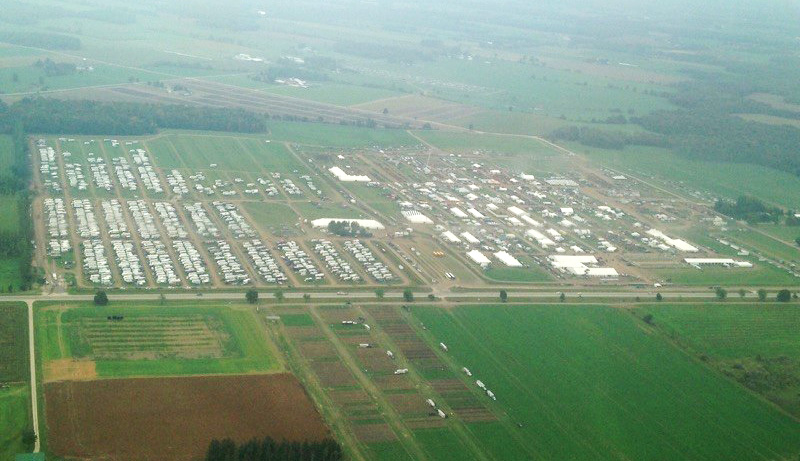 A year ago, public health inspectors began working directly with the event organizers to get ready. One of the challenges was how to deliver water to all the food vendors and an RV park with 1,500 camping sites. The solution was to install 10 kilometres of water distribution lines – that’s enough line to go from Fergus to Elora and back! The event organizers arranged for water to be hauled to the IPM in tanker trucks where it was stored, chlorinated and pressurized for distribution throughout the site.
A year ago, public health inspectors began working directly with the event organizers to get ready. One of the challenges was how to deliver water to all the food vendors and an RV park with 1,500 camping sites. The solution was to install 10 kilometres of water distribution lines – that’s enough line to go from Fergus to Elora and back! The event organizers arranged for water to be hauled to the IPM in tanker trucks where it was stored, chlorinated and pressurized for distribution throughout the site.
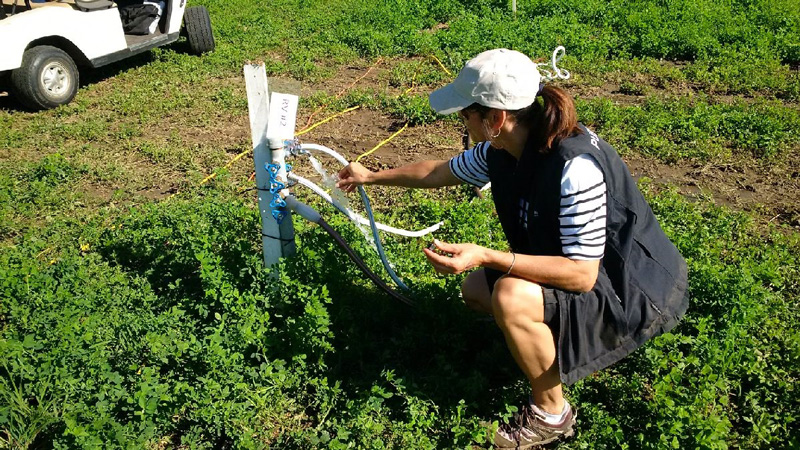 Every day of the IPM, public health inspectors tested the water at 18 sites to ensure that the water running through the pipes was safe to use. It was important that the bus loads of school children attending the animal exhibits were able to wash their hands after visiting the animals. People staying in the RV campground needed to have access to a safe source of water for the duration of their stay. Food vendors also needed access to safe water to prepare food for thousands of people to eat – including a wide variety of yummy items such as pulled chicken poutine, blooming onions, beavertails, pie and ice cream.
Every day of the IPM, public health inspectors tested the water at 18 sites to ensure that the water running through the pipes was safe to use. It was important that the bus loads of school children attending the animal exhibits were able to wash their hands after visiting the animals. People staying in the RV campground needed to have access to a safe source of water for the duration of their stay. Food vendors also needed access to safe water to prepare food for thousands of people to eat – including a wide variety of yummy items such as pulled chicken poutine, blooming onions, beavertails, pie and ice cream.
Before the 70 approved food vendors could begin to serve food to the public, they had to undergo an on-site inspection by Public Health. It was all hands on deck for eight public health inspectors. They made sure every vendor was following safe food practices before starting to serve food to the public on opening day.
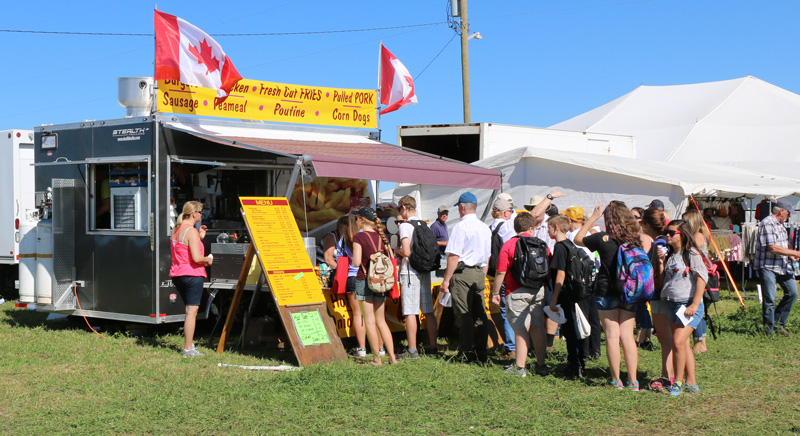 Public health inspector Theresa Santos was involved in running four food safety workshops and one full food handler course for IPM volunteers earlier this summer. “What I failed to realize was that this event is completely reliant on the help of volunteers. The greatest experience for me was being able to work with some of those volunteers with regards to food safety education. My interaction with over 100 of these volunteers proved to be a positive one – their willingness to attend, their attentiveness to the information given and their overall enthusiasm to help make the event as successful as it could be, as a public health inspector, was great to see.”
Public health inspector Theresa Santos was involved in running four food safety workshops and one full food handler course for IPM volunteers earlier this summer. “What I failed to realize was that this event is completely reliant on the help of volunteers. The greatest experience for me was being able to work with some of those volunteers with regards to food safety education. My interaction with over 100 of these volunteers proved to be a positive one – their willingness to attend, their attentiveness to the information given and their overall enthusiasm to help make the event as successful as it could be, as a public health inspector, was great to see.”
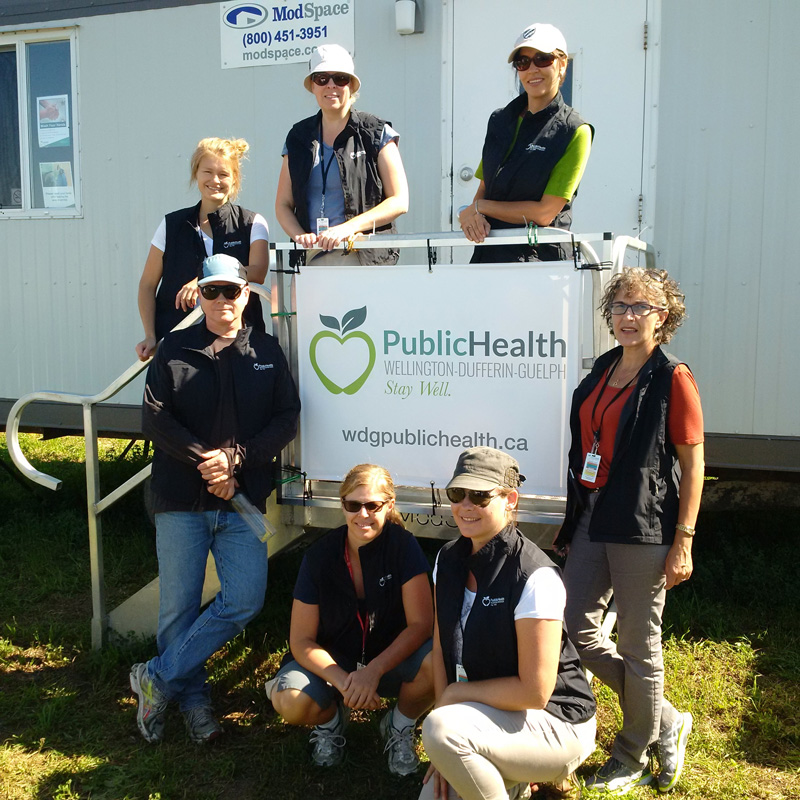 Anyone who works in the food industry as well as interested members of the public are welcome to register for a food handler course which is taught by a public health inspector. For more information, call 1-800-265-7293.
Anyone who works in the food industry as well as interested members of the public are welcome to register for a food handler course which is taught by a public health inspector. For more information, call 1-800-265-7293.
If you attended the International Plowing Match, what did you enjoy the most?
